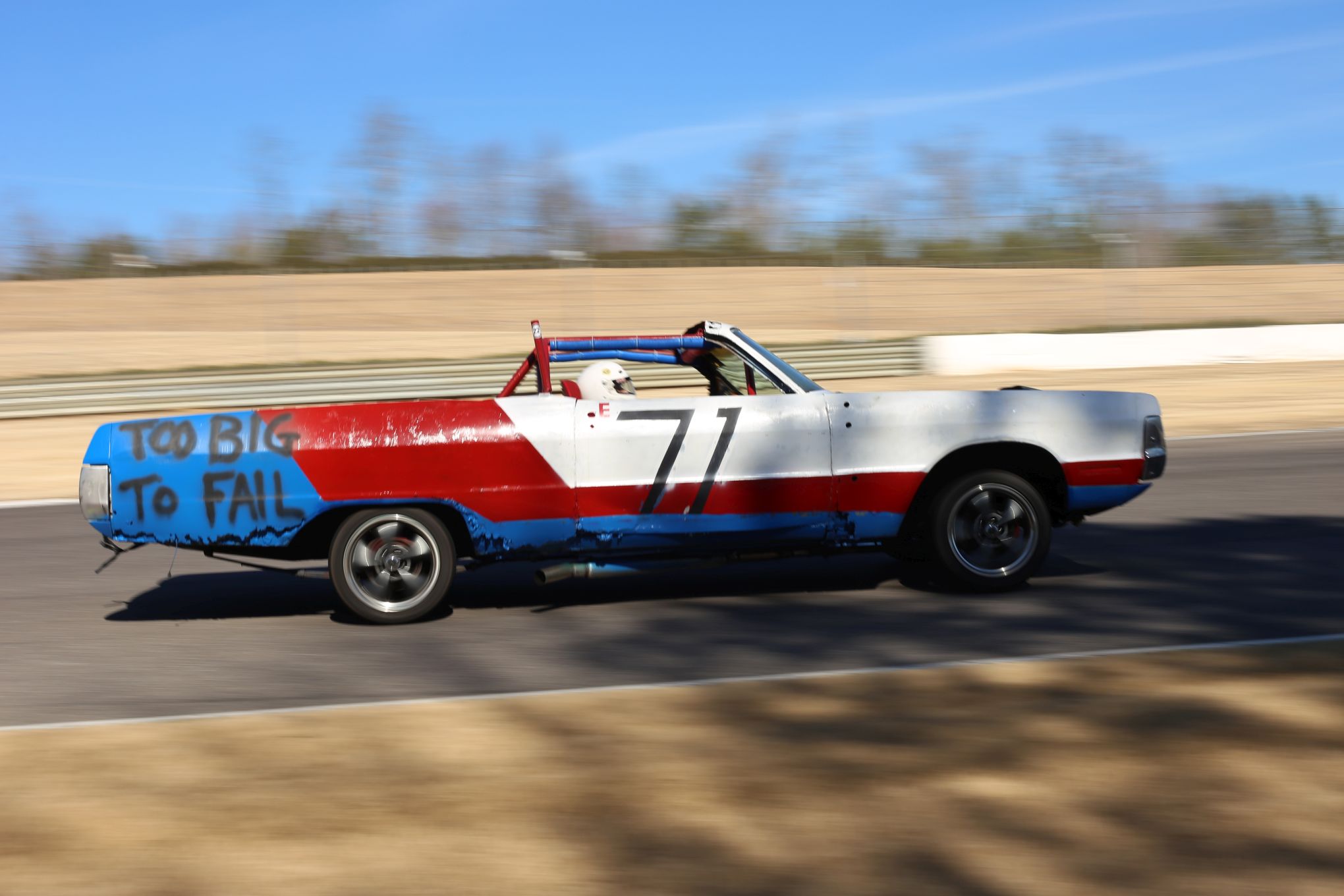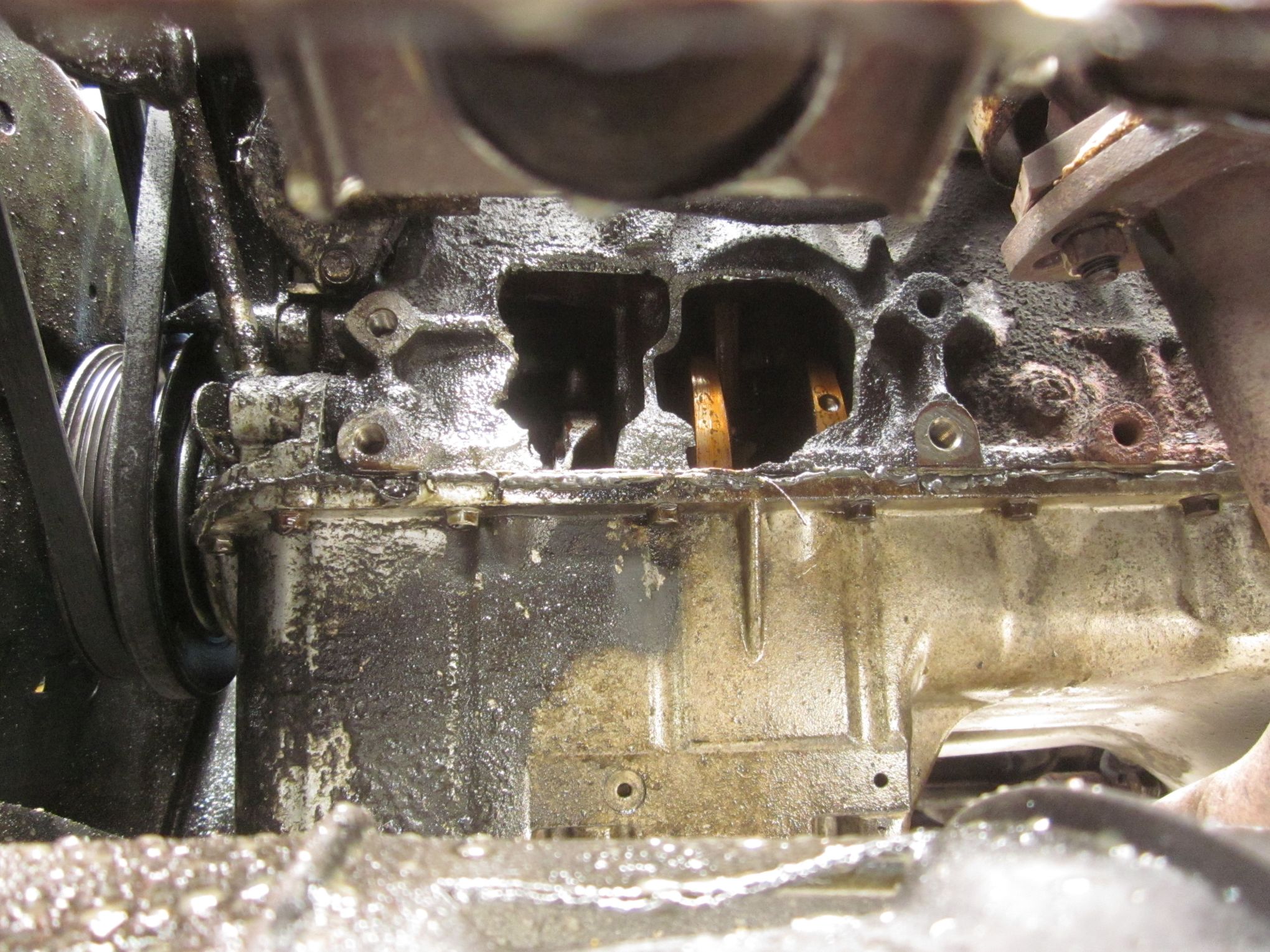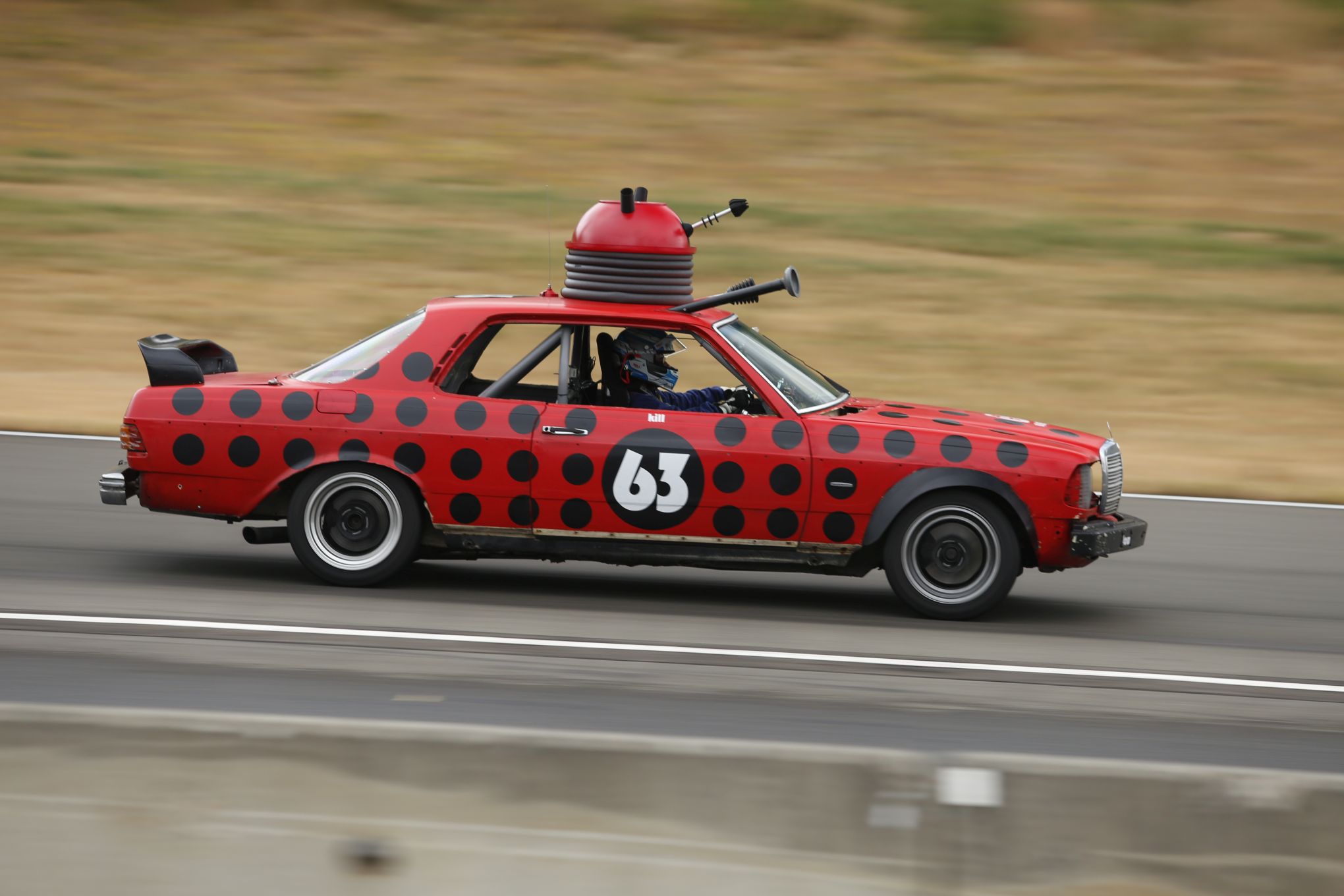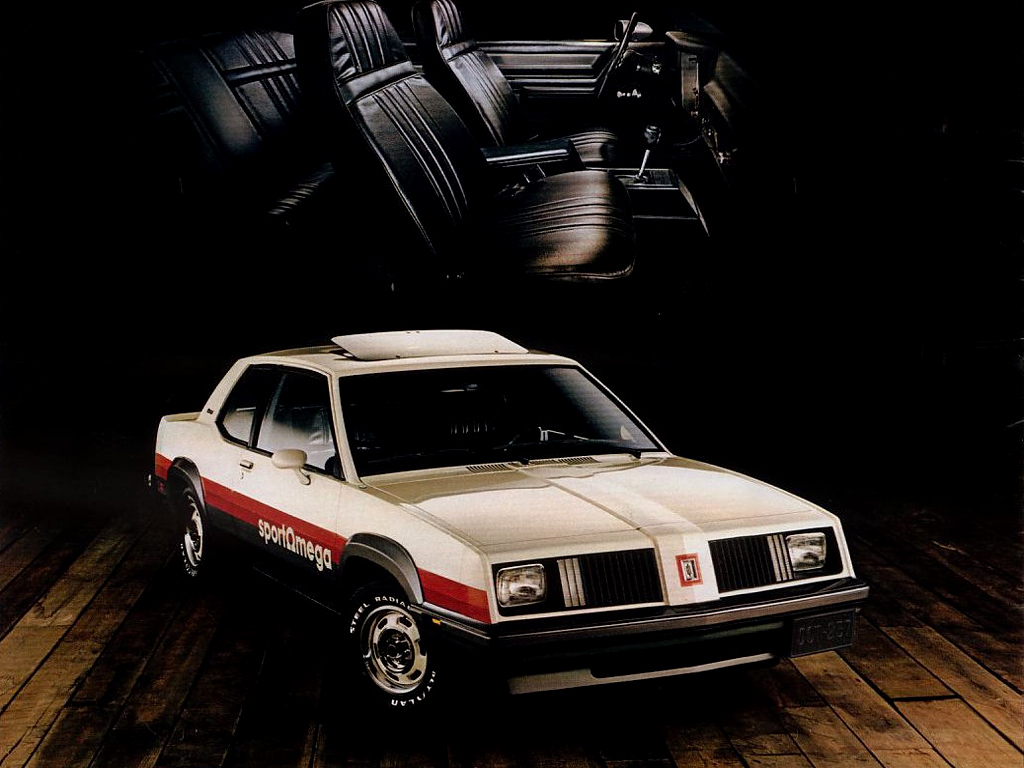Media | Articles
Choosing the best car to race in the 24 Hours of Lemons
If the 24 Hours of Lemons has you geeked—as opposed to freaked—and you’d like to be part of the fun, you might be wondering, “How do I find a car to build?” It’s a question that Lemons organizers answer on a regular basis. The short answer is “Get creative,” but really, the answer probably falls into one of a few categories of what makes a good Lemons car.
If you don’t know what the 24 Hours of Lemons is, be sure to check out our Lemons FAQ.

Caveat Emptor
Before we dive in too deeply, it’s important to note three things regarding any car you prepare for Lemons:
Marketplace
Buy and sell classics with confidence
- Every car will be expensive to build. The mandatory safety gear typically costs several times more than the $500 car-value limit, but it’s worth it to come home in one piece after a race.
- Every car will break. Prepare as diligently as you’d can—or would like. Endurance racing inevitably beats up cars and their constituent parts. You’ll figure out eventually. You can also get advice from the Lemons Forums about what spares to bring.
- Don’t try to be too cute with the $500 budget limit. If you bring a fully race-prepped BMW E46 M3, you’ll probably get penalty laps no matter how good your story is. Brush up on the $500 limit in the rulebook.
Alright, enough disclaimers. Let’s answer the big question. What makes a good 24 Hours of Lemons car? We’ve separated them into a few categories.

The car that’s already race-prepared
Degree of Difficulty: Easy to Hard (Buyer Beware)
Many teams move on to quicker or weirder cars over time, which often leaves their old cars for sale. The upside to this is you could be in for very little prep work. Depending on when the car last raced, it may need some updating to the current safety regulations and some, uh, deferred maintenance. However, the price typically reflects the quality of safety gear and the numbers of spares (not included in the $500 limit). The most common places to find used Lemons cars are the 24 Hours of Lemons Forums, RacingJunk.com, eBay, and CraigsList.
Beware of old non-Lemons race cars. Old SCCA or dirt-track cars are often built to different roll-cage specifications, and “we’ll just put in a new cage” will not save you time or money from building a car from scratch (if it’s even possible). Make absolutely sure everything about the cage meets Lemons’ safety rules before you think about buying that dirt-oval hornet car or 1980s-built F-Production Volkswagen Golf.

The car you know
Degree of Difficulty: Easy
If you’ve built and owned SN-95 Ford Mustangs for years, it only makes sense that you might put together a hooptie ’98 Mustang V-6. Knowing what kinds of things go wrong and how to fix a particular car can be and invaluable aid in spending as much time as possible on the racetrack. It beats scratching your head in the paddock over some obscure electrical gremlin.
Beware of bolting on parts you’ve “had laying around” the garage. Those are worth something and you can expect BS judges will assign a value to them if your car is brimmed of speed parts.

The car you have
Degree of Difficulty: Easy to Medium
Maybe you bought a beater-with-a-heater a year (or 10) ago and you’re finally ready to give it a proper Viking funeral. Or maybe the kids’ 1989 Honda Civic has finally jumped its last railroad crossing (we don’t condone that behavior… much). If you already have a car sitting around not doing much of anything else, you’ve already solved part of the problem. Send it!
Beware of speed parts that you “put on it years ago” or that “came with the car.” If you have adjustable coilovers on the car, those will also probably be given a real-world value during BS Inspection. Of course, it’s all relative: A BMW 3-Series will get far more scrutiny than, say, an Oldsmobile LSS.

The car you always wanted
Degree of Difficulty: Varies greatly
Remember that car you always thought would be cool to own when it was new 20 (or 30 or 40 or 60…) years ago? Well, here’s your chance to own a sad version of your dream car and you get to race it. Most mass-produced sports cars from the ’80s, for example, can be dug up for Lemons money, so you can run that FC Mazda RX-7 or Chevy Citation X-11 (no judgment) that you always thought would be awesome.
Beware the phrase “Never meet your heroes.” Otherwise, go nuts.

The car that’s cheap to run
Degree of Difficulty: Easy to Medium. (Most efficient cars are relatively easy to work on, too.)
While Lemons is as cheap as you’ll find for wheel-to-wheel racing seat time, it still can cost a decent chunk of money in gas, tires, and other consumables. Usually, lightweight cars with small engines can stretch the budget for fuel, tires, brake pads, and even mechanical components in the driveline.
Beware that how you drive a car on a racetrack also affects efficiency. For example, shifting long before the factory redline saves engine wear and at least a little fuel.

The car that’s cheap to fix
Degree of Difficulty: Easy to Medium.
A car that’s easy on gas and tires only matters much if it runs an entire weekend. If it doesn’t, you might find it helpful to start with a car that is common in local junkyards and will be well-stocked in any auto-parts chain. That makes it easier not only to build the car but also to find replacement parts nearby when it breaks during a race weekend. Not sure what’s common around you? Go to a few self-service junkyards nearby and you’ll get a pretty good idea.
Beware that using aftermarket parts can make this a moot point. In other words: Be judicious when you cheat in Lemons and make sure things can be pretty easily converted back to stock.

The car that’s on our wish list
Degree of Difficulty: Hard to Excruciating
Lemons judges have suggested their desire to see certain cars in the paddock by sharing various wish lists. While some teams have fulfilled their wish-list requests (with varying degrees of success), Lemons won’t turn down any duplicates from those lists.
Beware of Lemons judges’ recommendations. These are usually submitted for their own entertainment for the inevitable stories of fritzy General Motors electronics, maddening Malaise Era (lack of) build quality, or mind-bending exercises of engineering complexity.

The car with the most effluency
Degree of Difficulty: Very Hard
Lemons’ top prize is the Index of Effluency, which is earmarked for the teams who bring absolute crap and manage to salvage kind-of-alright finishes. You can read more about the IOE here, but this is really the creme de la creme in Lemons. If you bring something that fills the bill, expect to showered with praise… and probably more than one automotive fluid.
Beware of that fickle praise! Hopefully, it’s enough to sate you while you attempt to locate a fuel tank for a Renault R10 or figure out how to get a 1947 Plymouth Deluxe to stop and turn corners.

The car you think can win
Degree of Difficulty: Extremely Hard
Believe it or not, winning a 24 Hours of Lemons race is extremely difficult in any class, let alone overall laps. Not only do you need a car with reliability, decent speed, and efficiency, you also need drivers who can turn laps consistently without getting black flags. It’s much easier to win the Index of Effluency because that mostly requires you to be a masochist who manages to cobble together a crappy car enough to last (most of) an entire race. Making everything go right is much harder in Lemons.
This is also not something you can achieve on the first try. Even if you have the right combination of car and team, you still need a bit of luck. For some teams, that takes six or seven years to come along. Others have only got close to victory after 10 years of attempts.

The car you can have fun with
Degree of Difficulty: Extremely Easy (from a philosophical standpoint)
Really, this should be all the categories above. Put together some friends or family, then spend lots of time wrenching, joking, talking about domination, wrenching, racing, breaking, and wrenching some more. Together.
Beware: This is addicting. Don’t say we didn’t warn you.














